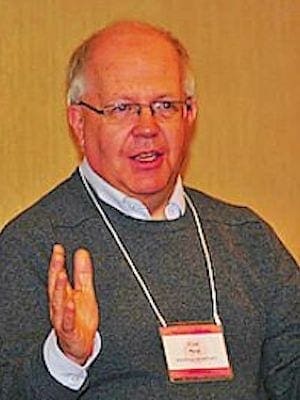It was a very long table. And round it we were crammed together, ambassadors, representatives of various foreign ministries, nongovernmental organizations and a few assorted religious leaders like me. This was my first “Wilton Park” Conference.
I learned that Wilton Park is an agency associated with the U.K. Foreign and Commonwealth Office but semi-detached from it.
It was founded by Winston Churchill after World War II to bring together people with differing, and often conflicting, perspectives on some of the burning questions of the day, especially to do with peace and security.
It continues to enable such conversations to take place across a whole range of issues that threaten to divide peoples and governments.
This time we were discussing how to combat intolerance and promote freedom of religion or belief for all.
We sat as equal partners around the table, no titles were used, and it was a safe space where all could speak and no speeches or remarks were to be publicly attributed, and so an honest sharing of concerns was more possible.
So we explored this vexed question of religious freedom, and whether religion can be part of the answer as well as the problem in our divided world.
We shared our differing perspectives from different faiths and national cultures around the world.
We were agreed that incitement to religious hatred was wrong but we differed as to how to define it.
And does it need to be prevented by legislation, the good example of religious leaders, better education of followers of a religion – or a combination of all of these?
We agreed that the question of religious freedom cannot be seen apart from the context of human rights as a whole because it impinges on so many other rights such as freedom of expression.
And in all our discussions we were encouraged to share good practice as to what is happening positively to break down the barriers to embracing freedom of religion or belief for all, and there were some interesting and impressive examples given.
When we got up from the table after 48 hours of intense discussion we had not answered all the questions or overcome all the challenges.
But we had listened to one another and begun to reach out to one another, and for me that meant appreciating what lay behind perspectives with which I might disagree.
And round the table, and over coffee and meal times, new contacts are made and new friendships begin to develop that might just help future developments on this issue.
It seems to me that as Christians and as European Baptists we need to do more of this; be willing to get round the table with others who may have a very different starting point – but what we can share is a concern for the common good of civil society in which religion still plays an important role.
It is so easy to stay in our Christian ghetto and there to bemoan the state of the world or to allow others to convince us that Christianity is now only relevant in my own private world.
As that great missionary statesman, Lesslie Newbigin, reminded us many years ago, the gospel is public truth, which has the potential to speak into and make its contribution to every area of society.
But this will not happen from a position of privilege or power, or if we simply want to guard our own boundaries.
Rather it will be as we open ourselves to come around the table with others to speak from our faith, but also to listen to others coming from a different place, and then to look for common ground as we face these fundamental questions of human rights.
As 2012 draws to a close, I marvel again that this essentially was the vision of that first English Baptist leader, Thomas Helwys, who 400 years ago in 1612 outlined his dream of a society that guaranteed religious freedom for all, with specific mention of Jews, Muslims and heterodox Christians.
Helwys died in prison before he could work out all the implications of his vision, but his words have inspired generation after generation for Baptists to see it as part of their DNA and work for it in their own time and place.
And that surely must necessarily involve us from time to time getting around the table with others as I was privileged to do recently – and to admit that quite often we have more in common then perhaps we thought was possible.
Tony Peck is general secretary of the European Baptist Federation. This column first appeared on his blog, Europe Matters.
Watch Tony Peck discuss Thomas Helwys in this brief interview from the 2012 Baptist World Alliance gathering in Santiago, Chile.
Tony Peck Talks About Thomas Helwys from EthicsDaily on Vimeo.

